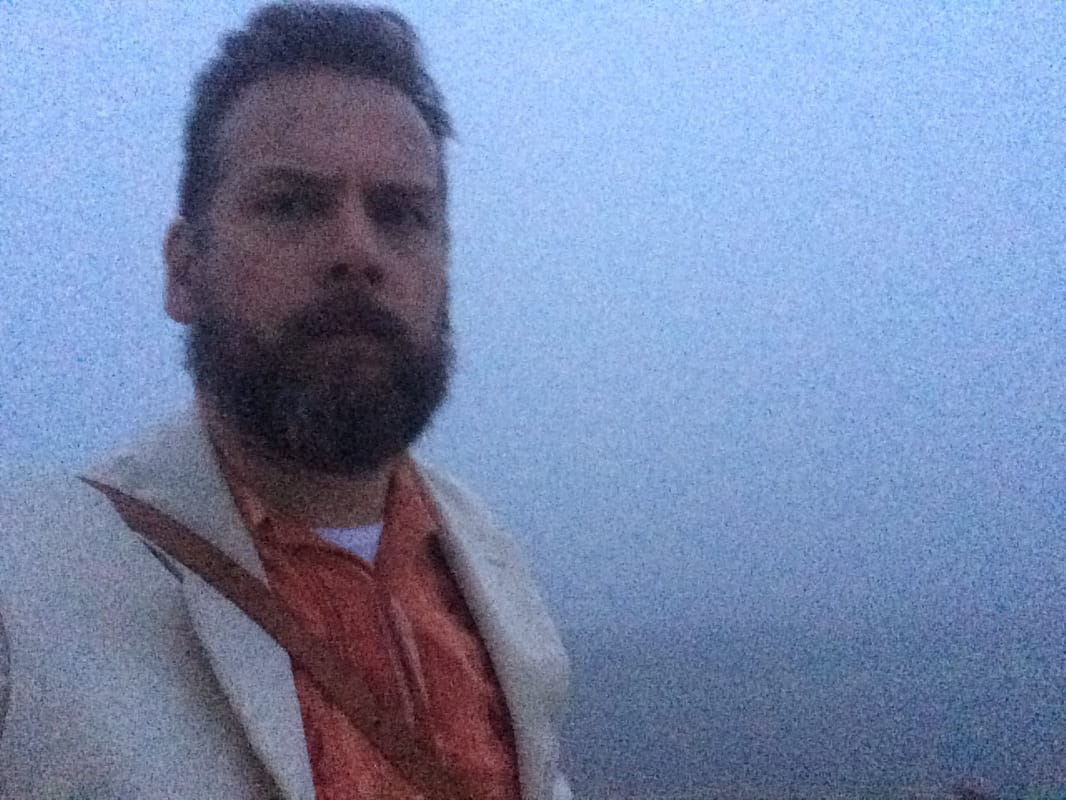 I am currently working on two writing projects. One is an original screenplay and the other an old novel I'm completely rewriting, to the extent that it's becoming a different novel altogether. I also have another screenplay which I will probably be rewriting in the next month, although not drastically. Add to this I write at least one story every day for the satirical website I co-run. Sometimes two or three. Stories are constantly running around my head. If I see something happen or I have a moment of anxiety, I immediately start thinking would this make a good start for a film/ a novel? Nothing is sacred. Car accidents, family crises, arguments and moments of tenderness. And nothing is too banal. Waiting rooms, supermarket aisles, car parks, washing machines, the way I butter my toast, a seagull killing a pigeon. I'm always on the look out for something I've never experienced before in a book, or on the screen. Not just raw material, raw raw material. And yet once I have it, I'm going to do my damnedest to cram it screaming its head off into some generic formula. I try not to, but the stories come like that. Life often happens generically. Sometimes I have a situation like the current screenplay I'm working on. I won't go into specifics because it's still in progress and I don't want to talk it out until the first draft is done (I'm 60 pages into it). The situation, although not original, hasn't been done properly for about thirty years. I have a very strong first act. The second is going okay but in the middle of the second act I'm faced with several big choices. The screenplay could become a horror film, very easily. It could also follow a satirical strain, perhaps even mixed with horror. It could become straight drama, or there could be action elements. It could even be Science Fiction. Not all ideas are so promiscuous to generic possibilities but this one certainly is and so there is a menu of ideas waiting, a crossroads. I could - given time - write three different scripts and chances are, through rewriting, I probably will. All because I can see these patterns, running off the page in all directions. Ray Kurzweil in How to Create a Mind describes the brain as a 'self-organizing hierarchy of pattern recognizers'. This single process, repeated millions of times, creates our ability to understand and operate in the world, it creates language and consciousness. And it's also a good way of thinking about stories. Most stories comes from the chaos of lived experience, the arbitrary and odd, but plot only emerges with the recognition of patterns, the imposition of patterns and the organisation of patterns. Stories have structure, turning points, denouements. Stories also strip out extraneous information, listening for the signal in the midst of the noise. To do that they often depopulate the world the better to see patterns: Notice how any given film always has far less people in any given situation. Bars are frequently deserted, roads are lonely and even crowd scenes employ a cast of extras who also seeming to wearing the same narrow palette of colors. Depopulation can be seen in the prevalence of coincidences in those Victorian novels and for that matter Soap Operas and classical Greek tragedy: 'She's my what?' When in Casablanca, Rick says, 'Of all the the bars in all the world, she had to walk into mine', he's laying bare the mechanics of story. Yes, she HAD TO walk into yours. There was no alternative. It's a massive coincidence but if she'd walked into the Blue Parrot, or any other of the hundreds of bars of historical Casablanca (in the film there are only two) and left the next night, there's no story. And no one wants that. Just because there's a pattern doesn't mean we reduce reality to something or simplistic. Patterns can be as complex and filigreed as life itself, as enigmatic and mysterious. And there's always the lingering doubt that the pattern isn't there at all. 'Yes, very like a camel,' we might say, gazing at the cloud, but is Hamlet just taking the piss? Whether we see a pattern, or whether we see confusion often depends on perspective and scale. At a macro- or microscopic level patterns might be much more obvious than at our naked eye scale, but then go further and everything becomes a cosmic soup or a Quantum playground. So things might be chaotic but even randomness has a pattern. To tell if something is random and not fake random - a very important distinction when it comes to serial numbers and codes - there are tell tale patterns. Randomness for instance has a tendency to cluster. Heads, tails, heads, tails, heads, tails doesn't appear to be random. Heads, heads, tails, heads, tails, tails tails, heads does. The story I am telling if it succeeds will end give reader/viewer an opportunity to see many patterns and not just the internal patterns of the story but those which exist between spectator and drama, art and lived experience. But there should also be the suspicion that the pattern is not really there at all. Like when we wake up at four o clock in the morning and there is a man sitting on the chair by the window watching us sleep. The brain has instantly recognized a possible pattern and has translated it into a perception, so we actually see the man. We blink and there is the heap of clothes on the chair we should have folded and put neatly away. What a relief! It isn't a story. It's just stuff.
1 Comment
will seddon
13/9/2014 04:58:31 am
Thank you, John. A thoughtful piece that chimed with a few ideas that have been rattling round in my head. I enjoyed reading it.
Reply
Leave a Reply. |
AuthorJohn Bleasdale is a writer. His work has appeared in The Guardian, The Independent, Il Manifesto, as well as CineVue.Com and theStudioExec.com. He has also written a number of plays, screenplays and novels. Archives
March 2019
|
 RSS Feed
RSS Feed


